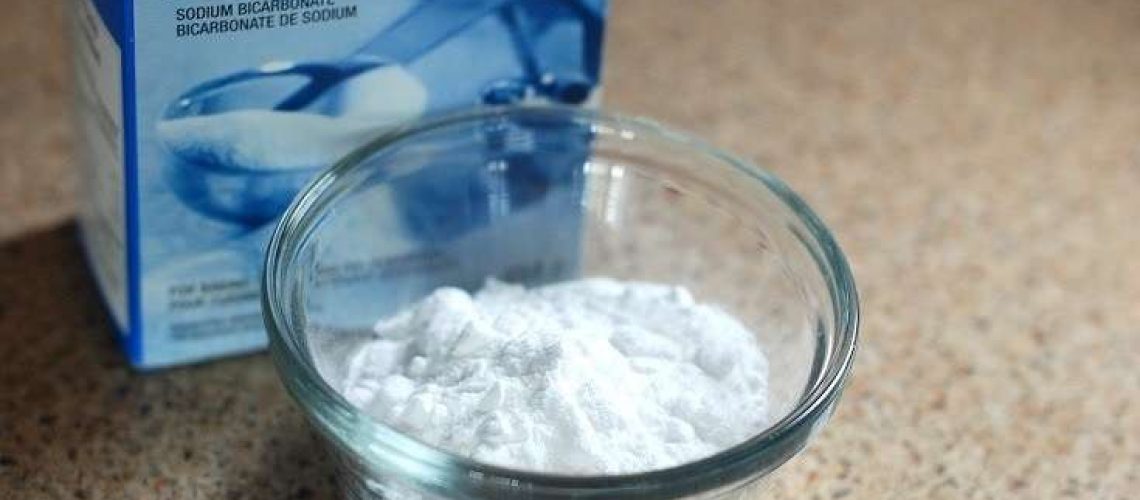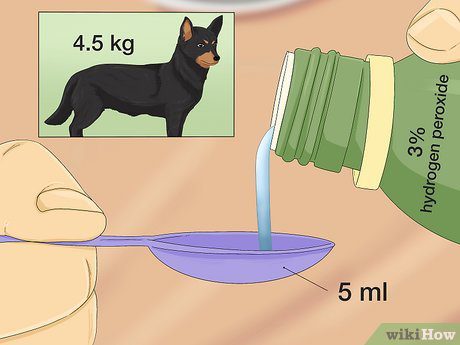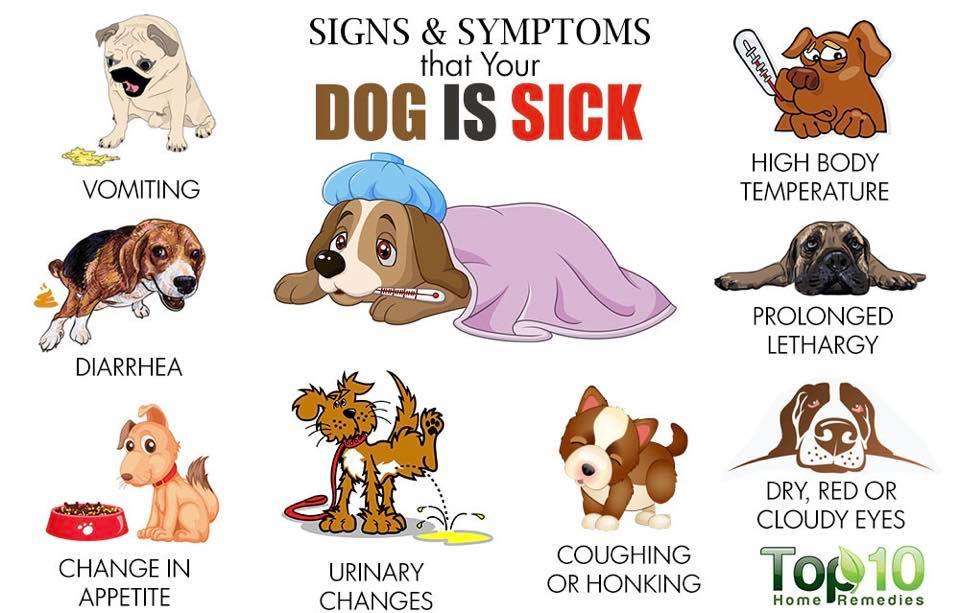Key Takeaways:
- Act quickly and contact your veterinarian if your dog ingests baking soda.
- Baking soda can cause stomach upset and electrolyte imbalances in dogs.
- Do not induce vomiting unless instructed to do so by a professional.
- Monitor your dog for symptoms such as vomiting, diarrhea, or excessive thirst.
- Prevent future incidents by keeping baking soda and other potentially harmful substances out of your dog's reach.
Introduction:
Did you know that baking soda, a common household ingredient, can be harmful to your furry friend if ingested? If you're a dog owner, it's crucial to understand what to do if your dog accidentally consumes baking soda. This knowledge could potentially save your pet's life and prevent any unnecessary panic or worry. In this article, we will explore the steps you should take if your dog eats baking soda and why it's essential to act quickly. So, let's delve into this important topic and ensure the well-being of our beloved canine companions.
What happens if your dog accidentally eats baking soda?
It is not uncommon for dogs to get into things they shouldn't, including household items like baking soda. While a small amount of baking soda may not be harmful to your dog, consuming a large quantity can lead to some unpleasant symptoms and potential health risks.
If your dog ingests baking soda, it can cause an upset stomach and digestive issues. Baking soda is alkaline and can disrupt the natural balance of acid in your dog's stomach, leading to discomfort and potentially causing vomiting or diarrhea.
Symptoms of Ingesting Baking Soda
If your dog has eaten baking soda, there are a few signs you should watch out for:
- Vomiting
- Diarrhea
- Excessive thirst or urination
- Abdominal pain or bloating
- Lethargy or weakness
When to Seek Veterinary Care
If your dog has ingested a large amount of baking soda or is experiencing severe symptoms, it is important to seek veterinary care immediately. The veterinarian will be able to assess the situation and provide appropriate treatment.
Treating Mild Symptoms at Home
If the symptoms are mild and you are unable to reach a veterinarian right away, there are some steps you can take at home:
- Offer small amounts of water frequently to prevent dehydration.
- Avoid giving any food for a few hours to allow the stomach to settle.
- If vomiting continues for more than 24 hours or if there is blood in the vomit or stool, contact a veterinarian.
- Monitor your dog closely and seek veterinary care if the symptoms worsen or persist.
Is eating baking soda harmful to dogs?
Eating baking soda can be harmful to dogs. Baking soda is a common household ingredient used for cooking and cleaning, but it can cause health problems if ingested by dogs. When dogs consume baking soda, it can disrupt the acid-base balance in their bodies, leading to various complications. The alkaline nature of baking soda can cause stomach upset, vomiting, and diarrhea in dogs. In severe cases, it may even lead to electrolyte imbalances or metabolic alkalosis. It is important to keep baking soda out of reach from your furry friend to prevent any accidental ingestion.
Why is baking soda harmful to dogs?
Baking soda contains sodium bicarbonate, which acts as a leavening agent in baked goods. While it is safe for humans when used in moderation, dogs have different digestive systems and metabolisms. Their bodies are not equipped to handle large amounts of baking soda like humans can. When ingested by dogs, the alkaline properties of baking soda can disrupt the natural pH balance in their stomachs and intestines. This disruption can lead to gastrointestinal issues and other health complications.
What happens when a dog eats baking soda?
If a dog consumes baking soda, it may experience symptoms such as vomiting, diarrhea, abdominal pain, excessive thirst or urination, tremors or seizures, and even difficulty breathing. These symptoms may vary depending on the amount of baking soda ingested and the size of the dog. It is crucial to monitor your dog closely if you suspect they have consumed baking soda and seek veterinary assistance immediately.
To prevent your dog from accessing baking soda or other potentially harmful substances in your home:
1. Store all cleaning products securely: Keep them out of reach from your pet by storing them in locked cabinets or high shelves.
2. Dispose of waste properly: Ensure that you properly dispose of any baking soda or other potentially harmful substances, so your dog cannot access them in the trash.
3. Supervise your dog: Keep an eye on your dog when they are in areas where baking soda or other chemicals may be present, such as the kitchen or laundry room.
4. Use pet-friendly alternatives: Opt for pet-safe cleaning products and avoid using baking soda or other household items that could be harmful to your furry friend.
Remember, if you suspect your dog has ingested baking soda or any other toxic substance, it is always best to consult with a veterinarian for proper guidance and treatment.
How can you tell if your dog has ingested baking soda?
Observing unusual behavior
If you suspect that your dog may have ingested baking soda, it is important to closely observe their behavior. Look out for any signs of discomfort or distress such as excessive drooling, restlessness, or pacing. Your dog may also exhibit signs of abdominal pain, such as whining or whimpering. Keep an eye on their overall energy level and appetite as well. If you notice any significant changes in their behavior, it could be an indication that they have consumed baking soda.
Checking for physical symptoms
Apart from observing your dog's behavior, it is also essential to check for any physical symptoms that may suggest the ingestion of baking soda. Look inside your dog's mouth and throat for any traces of white powder or residue. In some cases, dogs may vomit after consuming baking soda, so inspect their vomit for the presence of baking soda particles. Additionally, pay attention to their stool consistency and color as changes in these areas can also indicate a potential ingestion.
Important note:
Please remember that these observations are not definitive proof that your dog has consumed baking soda. It is always best to consult with a veterinarian for a proper diagnosis and guidance.
Taking prompt action when you suspect your dog has ingested baking soda is crucial to ensure their well-being.
What are the possible symptoms of a dog consuming baking soda?
Signs to look out for
If your dog accidentally consumes baking soda, there are several symptoms you should watch for. One common sign is vomiting, which may occur shortly after ingestion. Additionally, your dog may experience diarrhea or have an upset stomach. These digestive issues can cause discomfort and may lead to dehydration if not addressed promptly. Another symptom to be aware of is excessive thirst, as baking soda can disrupt the electrolyte balance in your dog's body. Keep an eye out for increased urination as well, as this can be a sign that your dog's kidneys are working overtime to eliminate the excess sodium from their system.
Behavioral changes
In some cases, consuming baking soda can also lead to behavioral changes in dogs. Your furry friend may become restless or agitated due to the discomfort caused by digestive issues. They might also exhibit signs of lethargy or weakness, as their body tries to cope with the effects of ingesting baking soda. It's important to monitor your dog closely and note any unusual behaviors or changes in their usual routine.
Do you need to take your dog to the vet if they eat baking soda?
When veterinary attention is necessary
If your dog has consumed a small amount of baking soda and is showing mild symptoms such as temporary digestive upset, it may not be necessary to rush them to the vet immediately. However, it is always best to consult with a veterinarian just to be safe. They can provide guidance based on your specific situation and advise you on whether further action is needed.
Emergency situations
In certain cases, immediate veterinary attention is crucial. If your dog has ingested a large quantity of baking soda or is experiencing severe symptoms such as persistent vomiting, diarrhea, or difficulty breathing, it is essential to seek professional help right away. These symptoms could indicate a more serious condition that requires immediate medical intervention. Remember, it's better to err on the side of caution when it comes to your pet's health.
Steps to take at home if your dog consumes baking soda
Contacting a veterinarian
If you suspect that your dog has consumed baking soda, the first step is to contact your veterinarian. Explain the situation and provide them with any relevant details such as the quantity ingested and the time of ingestion. They will be able to assess the severity of the situation and provide guidance tailored to your dog's specific needs.
Monitoring and providing comfort
While waiting for veterinary advice, it's important to monitor your dog closely. Keep an eye on their behavior, appetite, and hydration levels. Offer them small amounts of water frequently to prevent dehydration. If they are experiencing discomfort or digestive upset, you can try offering bland foods such as boiled chicken and rice once they have been cleared by a vet.
Preventing future incidents
To avoid similar incidents in the future, make sure to store baking soda securely in a place that is inaccessible to your dog. Consider using childproof locks or storing it in high cabinets. Additionally, be cautious when using baking soda around your pet and ensure that any spills or remnants are promptly cleaned up.
Remember, always consult with a veterinarian for professional advice tailored to your specific situation.
In conclusion, if your dog accidentally eats baking soda, it is important to stay calm and monitor their behavior. Contacting a veterinarian for guidance is the best course of action to ensure your dog's safety and well-being.
What happens if a dog eats baking soda?
Ingesting this substance can cause stomach irritation and may result in vomiting or diarrhea. In more serious cases, it can even be fatal. While a dog may not require medication if they accidentally consume baking soda once, it is important to prevent them from consuming any more of it as it can lead to severe dehydration.
Is baking soda irritating to dogs?
Although baking soda is safe for pets to consume in small amounts, it is recommended to remove as much as possible. It is advised to consult with a veterinarian before using baking soda as a dry shampoo to ensure that your pet is not allergic to it.
What happens if a dog licks soda?
Soda is harmful to your dog's health because it contains sugar and caffeine. Caffeine, in particular, is highly toxic to dogs and can result in hospitalization if consumed in large amounts. Caffeine poisoning can be fatal for dogs.
Is vinegar and baking soda safe for dogs?
Although vinegar has many benefits in dog shampoo, it is important to be cautious and avoid getting it in your dog's eyes. Household vinegar, which has a mild acidity, can cause discomfort. If your dog has a strong odor, it is recommended to first apply a mixture of baking soda and water and gently massage it onto your dog's coat and skin.
Can I brush my dog's teeth with baking soda?
No, baking soda is an alkaline substance that can disturb the natural acid balance in the stomach and digestive system if ingested. Furthermore, baking soda does not have a pleasant taste and may make your dog resistant to having its teeth brushed. Instead, apply a small amount of toothpaste to the toothbrush.
Does baking soda keep dogs away?
No, baking soda does not prevent dogs from repeating unwanted behavior, although it can act as a neutralizer and cleaner.

















